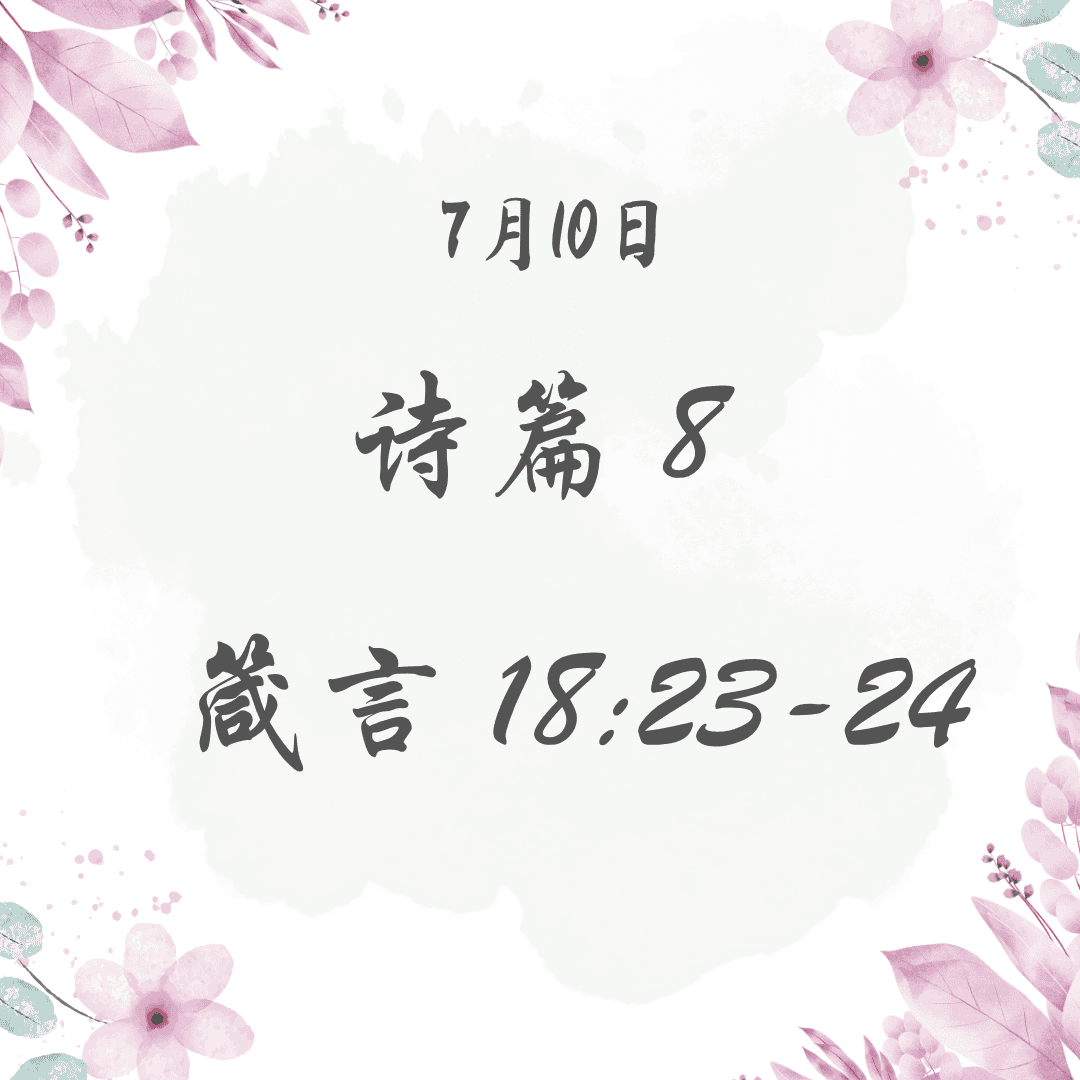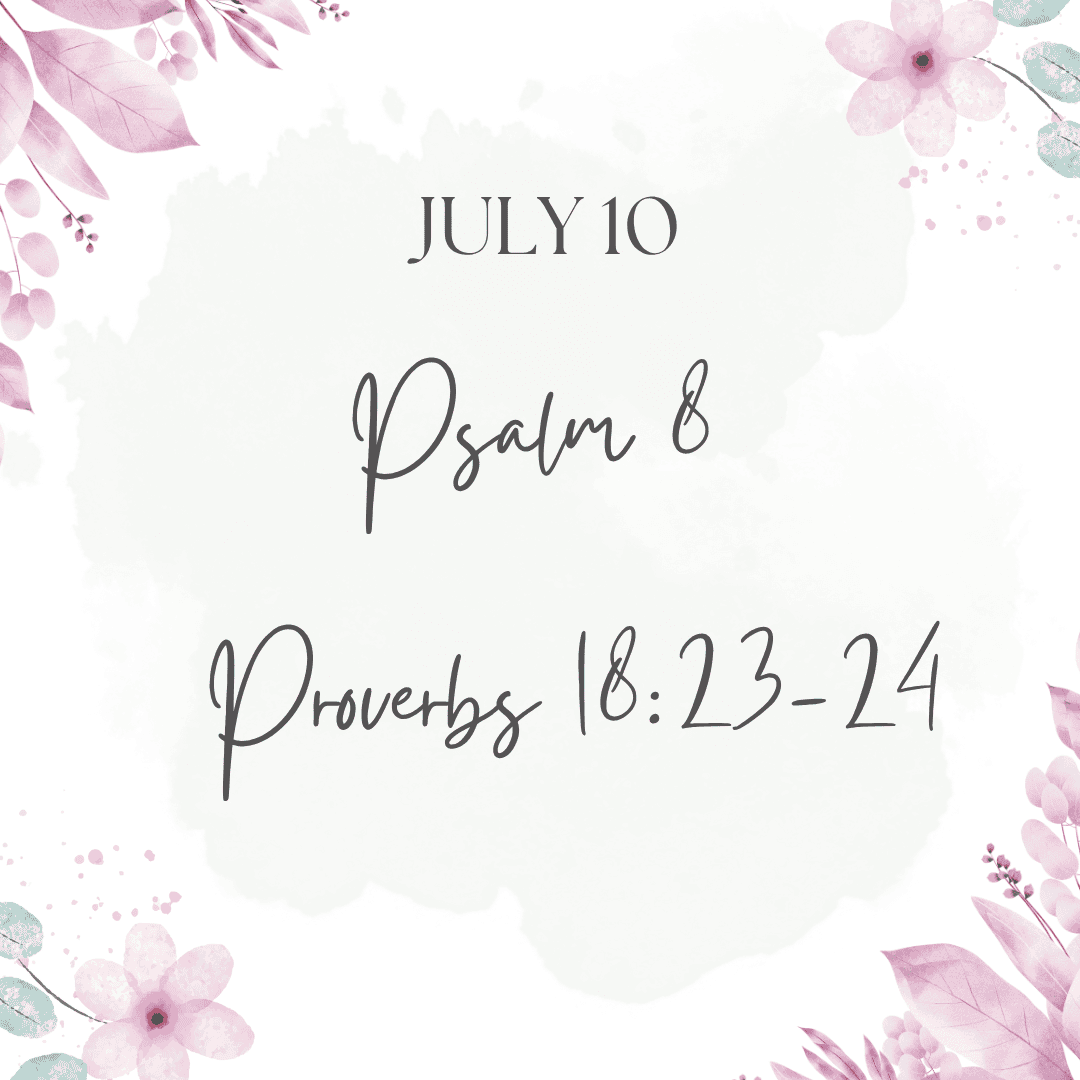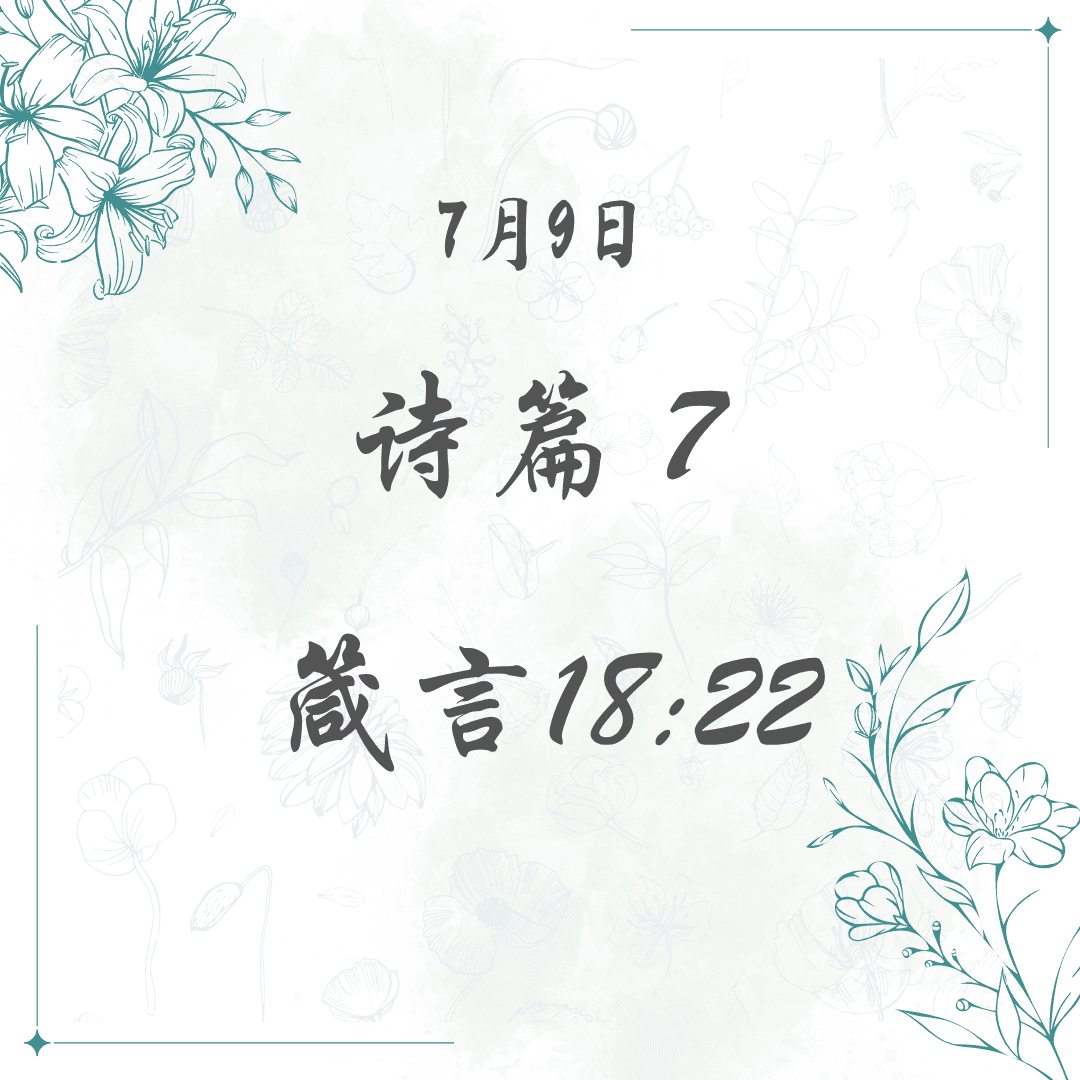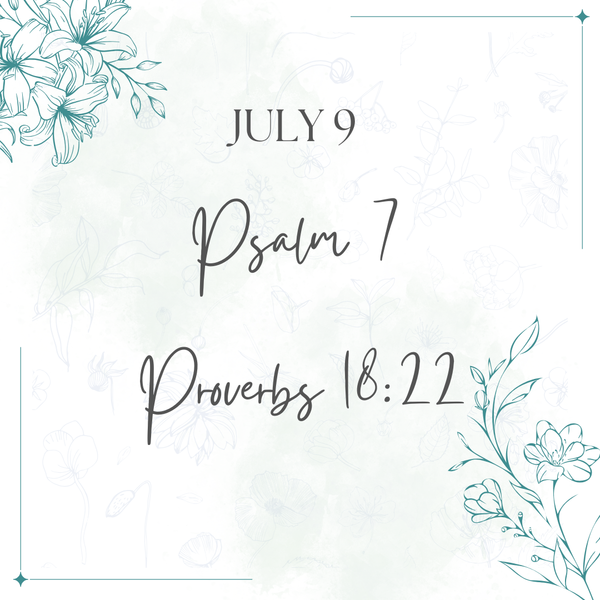June 25 Psalm 143; Proverbs 17:26
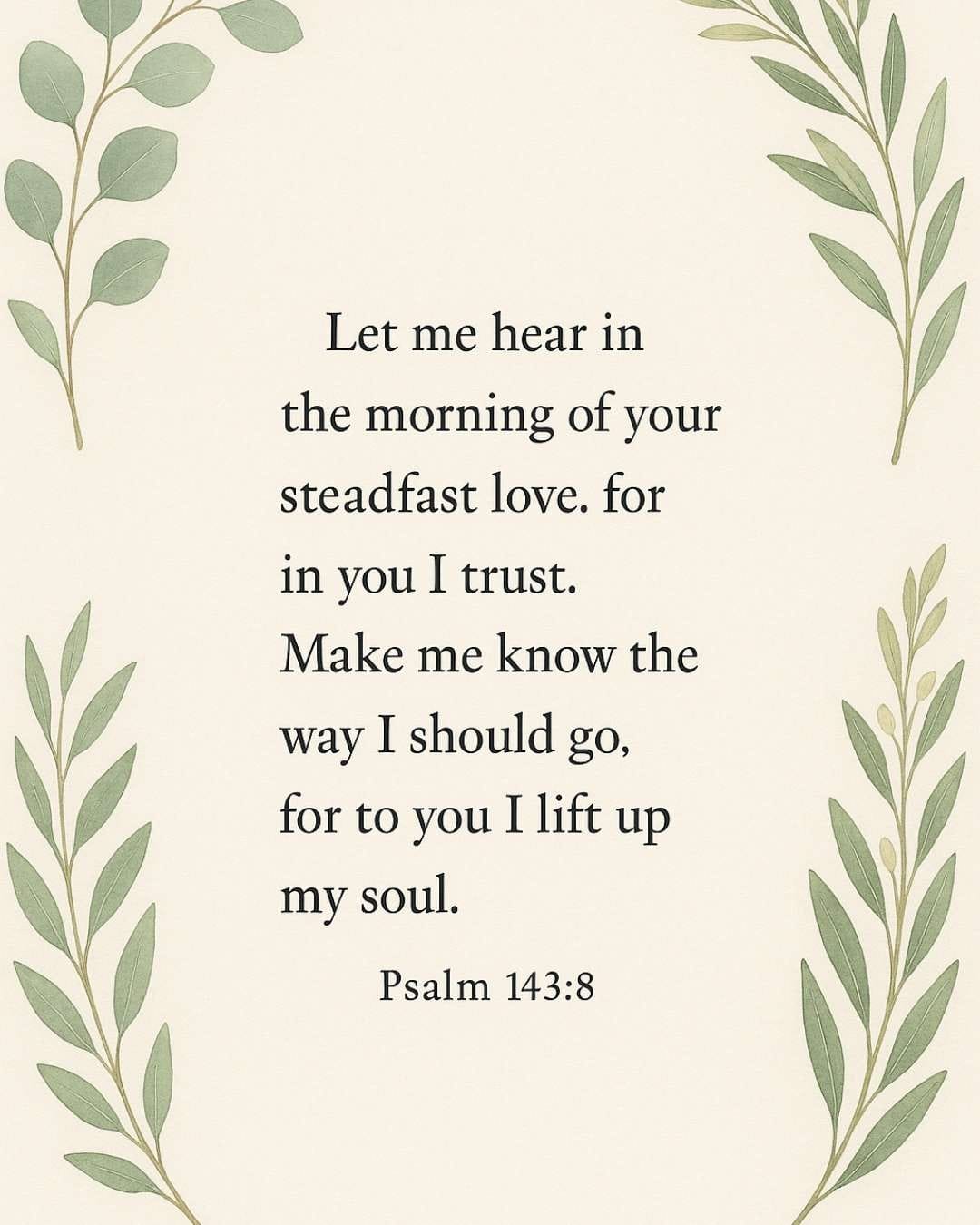
- According to Psalm 143:3-4, what kind of pressure or suffering is the psalmist experiencing? Who does he believe is attacking him?
- In Psalm 143:2, why does the psalmist say, “Don’t put your servant on trial”? What does this reveal about how he views himself before God?
- How is God described in Psalm 143:8, 10? What qualities of God does the psalmist rely on in times of despair?
- When you are overwhelmed, like the psalmist, where do you typically turn first—for relief, comfort, or guidance?
- In Psalm 143:5-6, the psalmist remembers God’s past deeds and stretches out his hands in prayer. When you think of your past, which one comes first and strongest, your dark past or God's saving grace towards you again and again? How can remembering God’s past faithfulness help when you're battling inner turmoil or sin?
- Psalm 143:10 says, “Teach me to do your will, for you are my God.” Are you more eager to ask God to fix your situation, or to change your heart and behavior in it?
- Who do you consider your greatest enemies right now? Are they truly external people or circumstances—or could pride, bitterness, laziness, fear, or other sins be your deeper foes?
- Proverbs 17:26 says, “It is wrong to punish the godly for being good or to flog leaders for being honest.” Have you ever been criticized or mistreated for standing up for righteousness or truth? How did your heart respond? Have you ever, through words or actions, hurt someone around you who was living with integrity?
- What are some ways you've blamed others for your suffering, when in truth, your own unconfessed sin or resistance to God’s leading may be at the root?
Write a prayer like the psalmist, asking God to deliver you from the real enemies you are facing in this season of life—whether external or internal. Pray and see.
May meditation on God’s Word and prayer bring you ongoing renewal, freedom, and strength in your life!
